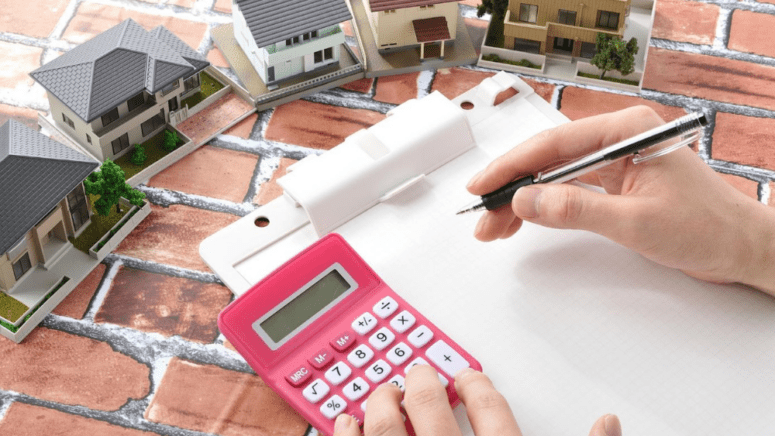7 Reasons to Check Your House Value (and Where to Get an Estimate)
- Published on
- 15 min read
-
 Lori Lovely, Contributing AuthorClose
Lori Lovely, Contributing AuthorClose Lori Lovely Contributing Author
Lori Lovely Contributing AuthorLori Lovely edited the Real Estate Home section for the Indianapolis Star and covered the annual Dream Home construction and decor for Indianapolis Monthly magazine. She has written guides for selling houses and more.
-
 Richard Haddad, Executive EditorClose
Richard Haddad, Executive EditorClose Richard Haddad Executive Editor
Richard Haddad Executive EditorRichard Haddad is the executive editor of HomeLight.com. He works with an experienced content team that oversees the company’s blog featuring in-depth articles about the home buying and selling process, homeownership news, home care and design tips, and related real estate trends. Previously, he served as an editor and content producer for World Company, Gannett, and Western News & Info, where he also served as news director and director of internet operations.
It’s important to keep abreast of your home’s value. The 2024 U.S. Houzz & Home Study, which surveyed over 30,000 respondents, found that 56% of homeowners undertook a renovation project last year. Of these, 8% planned to sell their home soon and were motivated by the desire to increase its value.
They may be onto something. If your home’s value increases beyond what you paid for it, you can potentially leverage that equity. Perhaps you’d like to refinance your mortgage at a lower interest rate. If your property value has decreased, on the other hand, you may be able to get your property taxes lowered. At the very least, knowing this information will provide a picture of your financial health, so you should check your house’s value periodically.
A nationwide housing shortage and homeowners’ reluctance to give up their ultra-low mortgage rates have led to low inventory, keeping home prices high. This increases the chances that your home is worth more now than when you bought it.
But if you’re not sure how to check house value or even where to start, we’ll help you understand how to find out, why it’s important, and when you need to know your home’s worth.
We’ll start by providing a Home Value Estimator (HVE) tool that can give you a rough idea, but we’ll also explain why these Automated Valuation Models (AVMs) are merely a starting point and shouldn’t be relied on for conclusive numbers.
Next, we’ll share our research results with you and introduce experts Kevin Yoder, a top-selling agent in Grand Rapids, Michigan; Mike Ford, a Southern California-based general certified real estate appraiser since 1986; Warren Boizot III, SRA, a state-licensed appraiser in the Denver, Colorado metropolitan area; and Megan Toll, an experienced Philadelphia agent with The Kevin Toll Group, all of whom can guide you through the process of finding out if your home is worth more than you paid for it.
7 good reasons to check up on your home’s value today
What exactly is your home worth today, and is it worth more than you paid for it? “Most homeowners do nothing with that information,” Yoder says. “I bought my house for X, and now it’s worth Y. Yay!”
If homeowners don’t do anything with that information, they might be missing out. Knowing your home’s value empowers you to make important decisions, not only about your home but about your life. Ahead, we’ll share some of the top reasons you should check up on your home’s value:
1. See if you can ditch private mortgage insurance and save money
If your down payment was less than 20% when you bought your house, and you used a conventional loan, the lender probably required you to purchase private mortgage insurance (PMI). PMI protects the lender if you default on your mortgage and end up selling a house in foreclosure.
PMI usually costs about 0.5% to 1.5% of the loan amount annually. For example, on a $200,000 mortgage, your PMI would be about $1,000 to $3,000 per year. The cost is typically split up and added to your monthly mortgage payment, along with the principal, interest, and property taxes.
However, as soon as the principal balance hits 80% of the original loan amount (when you have built up 20% equity), you have the right to request that your servicer cancel PMI. When the principal balance reaches 78% of the original loan amount, the lender is required to terminate PMI automatically, according to the Consumer Financial Protection Bureau (CFPB).
You may be able to get PMI canceled with equity appreciation even earlier, but you’ll likely have to provide evidence of your home’s current value, perhaps by getting a home appraisal. Because a home appraisal typically costs between $300 and $550, it’s often worthwhile considering PMI typically costs between 0.05% and 1% of the loan amount annually.
Toll advises clients to do their “homeowner work” and talk to the mortgage company about dropping PMI, especially if the home’s current value has increased.
“PMI is huge,” Toll says. “You can save $100, $200, $300 a month [by dropping the PMI]. It’s a huge savings.”
2. Know if your property’s full value is really covered by homeowners insurance
Homeowners insurance (also known as home insurance) is required by most lenders to cover damage to the interior and exterior due to fire, hurricanes, tornadoes, lightning, vandalism, or other covered disasters. Your policy may also cover the contents of your home — including furnishings and clothing — as well as additional living expenses you must incur while your home is being repaired or rebuilt.
If you discover your home’s value has significantly increased, it might be time to reevaluate your homeowner’s insurance policy. Your insurance coverage should match your home’s value; if the value has increased, your policy may lag behind. That could mean you’re not covered for the cost of its full value if something happens.
Your insurance company probably has policies in place for general inflation, but if you find your home has significantly increased in value or you’ve added on or made updates, it’s time to reexamine your home insurance coverage.
Particularly if you’ve updated or expanded your home, you’ll want to take a look at your insurance dwelling limit (the estimated cost to rebuild the home as it stands now) to ensure full replacement coverage. It’s also worth considering your policy’s stance on cash value, or replacement cost, which can be negotiated as part of the policy. Cash value means the insurance company will pay the depreciated value of an item at the time it was damaged or lost.
3. Reveal tax implications: Are you paying too much or too little?
A good reason to know how much your home is worth relates to property taxes. If your home increases in value, whether as a result of upgrades, additions, or other improvements you made to it or simply because, over time, the neighborhood has appreciated, you will probably owe more. Assessments determine the value of your home. Property taxes are based on this value. Therefore, a higher assessment could result in a higher tax bill.
Conversely, if your home is valued lower than when you bought it, you can appeal to your county or municipality and ask for a lower payment. According to CoreLogic, in the first quarter of 2024, 1.8% of all mortgaged properties in the U.S. (roughly 1 million homes) had negative equity, meaning the borrower owes more on their mortgage than the house is worth.
In most cases, you’ll need to provide some proof that your home has been over-assessed. An appraisal is strong evidence, but some counties may be placated with recent comps or comparisons of the tax assessment on your neighbors’ homes.
“Tax planning or compliance are fairly common reasons,” to check in on your home’s value, Ford says.
4. Understand your home’s value according to online listing sites in case you decide to sell
If you’re beginning to think about a move, knowing the value of your property could lead to an accelerated sale timeline. With so many people beginning their home searches online, it’s wise to check your home’s history and value online to ensure accuracy.
“Listing sites use algorithms,” Toll points out. Those algorithms take into account the character of the property, square footage, acreage, number of bedrooms… “But they don’t know about upgrades.”
If your home’s value isn’t accurately represented by listing sites, you can work with an agent to update the details on the MLS (multiple listing service) or through your county’s assessment and taxation office, depending on the source of the incorrect information. Otherwise, you can make a list of any improvements you’ve made to the property to review with your agent once the time comes to sell.
5. Learn how much equity and borrowing power you’ve built up
If your home has increased in value, you may have accrued equity. That can benefit a homeowner in many ways. For one, it provides a better understanding of your overall financial situation, enabling you to make smart decisions.
For another, it could contribute to an accelerated timeline and more money in your pocket if you intend to sell your home, being careful to factor in the difference between home equity and your home sale proceeds.
If you don’t plan to sell your home, you can put equity to use in other ways, such as borrowing against it by taking out a Home Equity Line of Credit (HELOC).
This can help you access the financing you need to add value to your property with a strategic home renovation or improvement or even use the HELOC to invest in additional property.
Be careful with those home improvement projects, Boizot advises. “People can spend $100,000 and more to refurbish their home, including a kitchen/bathroom remodel or basement finish project.” But, too often, homeowners “over-improve” their homes for their market.
“[Sellers] are shocked that their $150,000 remodel only yielded $60,000 when they went to sell the property,” Boizot shares. “I see this often with basement projects where a homeowner will spend $100,000 to build their beautiful dream ‘man cave’ with the elaborate wet bar, wine cellar with tasting room, and tiered theatre room, only to find that their market simply doesn’t recognize below-grade (basement levels) of a home in the same way they do the above-grade levels of a home.”
How does a homeowner learn how much equity they’ve built? Boizot says, “Get an appraisal! Get a local appraiser familiar with your neighborhood [or] market to show you actual sales data in the form of an appraisal report … and show you what potential profit a sale will bring.”
6. Consider refinancing your home
You may opt for a cash-out refinance, which allows you to tap into your equity at a fixed rate. As opposed to a HELOC or a home equity loan that essentially adds a second mortgage, a cash-out refi is a brand-new mortgage with a higher loan amount than what you currently owe that provides a payout (that payout comes from the equity you’ve accrued). Some homeowners may be able to borrow up to 80% of the loan-to-value ratio, leaving 20% equity in their home.
This option has advantages, including a lower interest rate than an equity loan or HELOC, which could save you money in the long term.
7. Determine the best time to sell your house
Finding out the value of your home “is the number one factor in deciding when to sell,” Toll says, whether you’re considering relocating, “right-sizing,” or cashing out.
Is this the year you plan to sell your home? If you check your home’s value regularly, it just might be. According to the Case-Shiller National Home Price Index, U.S. home prices have surged 47% since early 2020. The ICE Mortgage Monitor report highlights that, as of early 2024, the typical mortgage holder in this country now boasts $299,000 in equity.
The median existing-home sales price hit $426,900 in June 2024, a 4.1% year-over-year increase, according to the National Association of Realtors (NAR). This was the second consecutive month that the median sales price reached an all-time high and the twelfth straight month of year-over-year price increases.
Although home sales are falling as would-be homebuyers struggle to afford higher prices and elevated mortgage rates, if your home is accurately priced and shows well, you could turn a sizeable profit.
However, if you’re unsure, listen to your gut, even if you’ve seen a huge upswing in value. “I find myself talking people out of selling because they’re just doing it for weird reasons,” Yoder explains. “I think the biggest thing is don’t sell just because your home has value on it. Unless there’s something strategic in that.”
If you don’t have a reason to move, whether it’s downsizing or relocating to a new neighborhood or city, don’t just sell to sell. And remember, with home prices on the rise, your next home may cost more too, so if you do move, be prepared to pay more.
That being said, if you’re ready to put up a “For Sale” sign, it’s wise to get an idea of the value of your home as the first step in your process. Keeping up with your home’s value, and researching the best time to sell in your area, will give you an idea of trends in your area and how your property stacks up.
How to determine your home’s value
There are several ways to find out your home’s value — on your own or with some assistance. HomeLight investigated some of the best ways to determine the value of your home.
Consult Home Value Estimator (HVE) or Automated Valuation Model (AVM) tools
Start with a simple online tool like HomeLight’s free Home Value Estimator, which pulls information from multiple sources to create a real-time home value estimate based on current market trends. We also use a seven-question quiz to learn more about your property and enhance the accuracy of our estimate.
Remember that AVMs can give only a ballpark estimate of your home’s value, and are merely a starting point. There are also concerns that AVMs can be less accurate in rural settings where there are fewer comps and that some racial disparities may remain.
“No AVM is consistently credibly reliable,” Ford insists. “Not one.” He observes that the parameters must be very narrowly defined to get a realistic value and insists that it “takes further human analysis to determine if those prices are also consistent with market value.”
Partner with a top agent to conduct a comparative market analysis
“The best way to find the value of your home,” Ford continues, is to partner with a knowledgeable top agent in your area to conduct a comparative market analysis (CMA). “A CMA is a more specific method. It’s not an appraisal, but it’s a pretty good substitute if it was prepared by the agent themselves, based on relevant information.”
Toll concurs. “The best place to start is with an agent who understands the comps and the area.”
More than an estimate, a CMA will use data from recent sales in your area to break down the home’s value by calculating a dollar value per square foot. Creating a CMA is often part of the beginning stages of a listing consultation, meaning you’re ready to start the home sale process.
In addition, a real estate agent will know not only what the housing market is doing in general but what it looks like in your area. Good agents keep on top of the current mortgage interest rates. They’ll know if the improvements you’ve made have added to your home’s value. And they should have a pool of prospective buyers who might be interested in purchasing your home.
Get a pre-listing appraisal
Depending on your goal, Toll says getting a home appraisal may be the way to go. “If you plan to get a HELOC, you’ll need an appraisal. If you want to know what your listing price should be now, talk to an agent.”
Many times, people think an appraisal is only done for mortgage lending purposes (refinance of an existing mortgage or purchase of a property), Boizot says, but there are other reasons to do one.
An appraisal for valuation purposes can be particularly beneficial if there aren’t many comps for a CMA in your area.
A credible home appraisal can cost between $300 and $550, but it can help you price your home for a quick sale, eliminate your PMI, or give you ammunition to dispute the assessed value of your home in the hope of lowering your property taxes.
Because an appraisal is performed by a licensed or certified third party, who must adhere to the Uniform Standards of Professional Appraisal Practice (USPAP), it is considered a reliable, professional valuation.
As of April 2022, Fannie Mae requires all residential appraisers and real estate practitioners to use the ANSI standard (American National Standards Institute), a standard and uniform method of measurement.
Given Boizot’s estimate that 75% of realtors use the public record square footage when listing properties, and that the same percentage of homes have different square footage when measured by a certified residential appraiser, he believes it is beneficial for an agent to have their new listing measured professionally.
“Realtors provide ‘sales;’ an appraiser determines which of those ‘sales’ are ‘comparables,’” adds Boizot.
You don’t need an appraisal every year, but appraisals expire after 90 days due to real estate market fluctuations that impact your home’s value. Nevertheless, if you are looking for an official number, working with a well-recommended appraiser might be the way to go.
Evaluate the comps
Do the homework yourself. While the average homeowner won’t have access to the industry’s MLS, it’s still possible to get some details on what homes in the area sold for. You can ask a real estate agent to check the MLS for you. The MLS contains information about the property, including listing price, sale price, size, location, and days on market (DOM or average time to sell a house), which is the number of days a property has been listed before the home goes under contract.
You may be able to get house comps from an appraiser, who puts comparable sales data and statistical information about the appraised property, as well as sold house comps into a Uniform Residential Appraisal Report, or a title representative, who has access to the title database, which contains records of all sold properties, including FSBOs (For Sale By Owner).
If nothing else works, check public records. The sales price of homes is typically recorded at the county level. The information may not be as complete as the MLS, but you should be able to get a general idea of your house value.
The caveat, according to Toll, is when the homeowner’s emotions get involved. Some homeowners have an inflated idea of their home’s worth. “I always ask how they found the value,” she says.
According to Boizot, however, public information also may not be accurate. “I can tell you that many times over the years, I have appraised a property where the [agent] clearly used the public record documented square footage, and then when I measure the property, found it to be, for example, 200 square feet larger!”
Use the FHFA House Price Index Calculator
The Federal Housing Financing Agency’s house price index (HPI) calculator compares millions of mortgage transactions gathered since the 1970s to track average changes in home value from one sale to the next. Based on historical data, the FHFA then estimates value fluctuations in any given market. However, it does not adjust for seasonality or inflation, and only considers conventional loans.
Conclusion: Taking the next steps is easy
Homeowners want to know the value of their home “all the time,” Toll says. “They’re curious. Maybe they bought it three to five years ago when they got married. Now they’re expecting a baby and want to upsize — or they want to relocate to be closer to family.” They need to know if the equity they have in their home will provide the necessary funding to do whatever it is they want to do.
Whether you want to adjust your homeowner’s insurance or property taxes, ditch the PMI, take out some equity for home improvement or other expenses, or you’re considering listing your home for sale, it’s important to know where to go to get the best information about your home’s value.
Homeowners can start by getting a real-world home value estimate in less than two minutes with HomeLight’s Home Value Estimator. Keep in mind that our HVE provides a ballpark estimate of value to give you a general idea of your home’s current market value.
If you want to go deeper into the details, you can partner with an experienced real estate agent who can provide a comparative market analysis. “Work with an agent with a good track record,” Toll advises. “Someone who understands the market, sells a lot of homes, and has the necessary tools.”
If you don’t have a relationship with such an agent, you can find top-rated, experienced real estate agents in your area with HomeLight’s Agent Match Tool.
Header Image Source: (beeboys / Shutterstock)
- "How much is mortgage insurance? PMI cost vs. benefit," The Mortgage Reports, Tim Lucas (February 2023)
- "On a mortgage, what’s the difference between my principal and interest payment and my total monthly payment?," Consumer Financial Protection Bureau (August 2023)
- "When can I remove private mortgage insurance (PMI) from my loan?," Consumer Financial Protection Bureau (August 2023)
- "Time to Rethink? 8 Situations to Re-Evaluate Your Homeowners Insurance," Mercury Insurance (June 2024)
- "Actual Value vs. Replacement Cost," U.S. News, Kathleen Curtis (July 2024)
- "How Do I Reduce My Property Taxes?," Experian, Gayle Sato (October 2023)
- "Homeowner Equity Insights – Q1 2024," CoreLogic (June 2024)
- "What Is a Loan-to-Value (LTV) Ratio?," Experian, Tim Maxwell (February 2024)
- "ANSI Measuring Standard: What You Need to Know," McKissock Learning,












